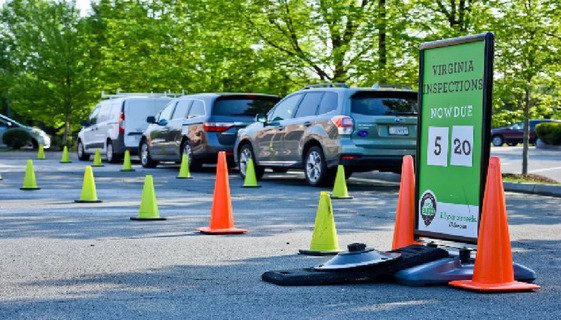Long-distance driving demands more than fuel and a good map—it requires something to pass the hours between shifts, during loading delays, or at roadside stops. Modern trucks and private vehicles increasingly feature dashboard infotainment, but drivers often turn to their smartphones for personalized entertainment. Gaming apps have quietly become part of that in-cab experience, offering bursts of fun during legally mandated rest periods.
The Rise of Smartphone-Based In-Cab Entertainment
For decades, AM/FM radios and portable DVD players filled the idle hours between destinations. Now, smartphones and tablets dominate that space. Streaming platforms, podcasts, and downloadable games provide on-demand options for every interest. Among long-haul drivers, mobile games—especially those that offer short, rewarding sessions—are gaining popularity. They require no extra hardware, run on minimal data, and can often be played offline. As a result, smartphones now serve as both work tools and entertainment hubs during road life.
Installing Games Safely: Why APK Hygiene Matters on the Road
The appeal of quick-download game apps can lead to unsafe shortcuts. Drivers looking to install games during layovers often turn to APKs found through web searches, unaware that many unofficial sources bundle malware, adware, or trackers. For this reason, it’s critical to use only verified app stores or trusted publisher sites. For example, users who opt for the parimatch apk download latest version for android benefit from a direct, certificate-signed installer that includes secure permission handling and no hidden background services. Apps like these avoid common issues such as battery drain, overheating, or system slowdowns—key concerns when relying on a phone for both navigation and relaxation.
Slot Games in Offline or Low-Signal Environments
Highways often stretch through areas with unstable signal strength, especially across rural belts or mountain corridors. That makes offline-ready games a smart choice for drivers. Many slot games are now built to function without a continuous internet connection, loading the graphics and gameplay logic onto the device itself. This allows players to engage with the app without buffering delays or unexpected disconnections. For drivers waiting at depots or parked in remote rest stops, offline slots offer an ideal blend of distraction and convenience, without relying on mobile data or public Wi-Fi.
Battery Efficiency and Heat Management While Gaming in Parked Vehicles
Gaming apps, particularly those with animated reels or sound effects, place extra demands on a phone’s hardware. When a vehicle is stationary and the air conditioning is off, heat buildup can occur quickly. To avoid thermal slowdowns or battery damage, it’s important to lower screen brightness, close unused apps in the background, and avoid charging the device while playing. Some newer phones include game modes that reduce performance spikes and help manage heat—useful features for anyone gaming regularly in a vehicle environment. Taking these precautions keeps the device responsive and extends its lifespan, even after hours of use.
Data Budgeting for Gamers Using Mobile Hotspots
Not all drivers have unlimited data plans. For those relying on mobile hotspots or shared connections, managing in-game data usage becomes important. Many mobile games now autoplay ads or download updates in the background. These features should be turned off when playing on limited plans. Settings like “Download updates on Wi-Fi only” and “Limit background data” help conserve bandwidth. A quick glance at the phone’s data-monitoring tools can show which apps are drawing the most resources, giving users control over their mobile budget while still enjoying downtime entertainment.
Hands-Free Entertainment: When to Play and When to Pause
Mobile games should never be used while the vehicle is moving. Even short distractions can compromise safety. For long-haul drivers, the right time to engage with gaming apps is during official rest breaks, meal stops, or overnight parking. These pauses are already mandated for driver health and legal compliance, making them perfect windows for short gaming sessions. By tying leisure time to scheduled breaks, drivers can enjoy entertainment without it spilling into working hours or affecting reaction time on the road.
Recommended Game Categories for Long-Haul Downtime
Games that require quick inputs and don’t stretch beyond 5–10 minutes per round tend to work best for drivers. Popular choices include lightweight arcade games, puzzle-based challenges, and slot apps with offline support. These formats offer engaging but low-stress interaction—ideal for recharging mentally without overcommitting. Unlike live multiplayer games, these don’t require constant attention, making it easier to pause and resume based on real-world interruptions like unloading times or dispatcher calls.
The Future of In-Cab Leisure and Smart Cabin Integration
The future of driver entertainment is already in motion. Infotainment systems increasingly support Android Auto and Apple CarPlay, allowing secure app integration through dashboard screens. While current standards limit direct gaming functionality through these platforms, the ecosystem is expanding. Soon, secure app mirroring and voice-assisted game browsing may allow drivers to access casual entertainment during safe windows—without ever touching their phones.
In the world of long-haul travel, small moments of rest can make all the difference. With smart app choices, safe installation habits, and clear boundaries between work and play, mobile gaming becomes more than a distraction—it becomes a tool for balance.
Refresh Date: August 21, 2025



